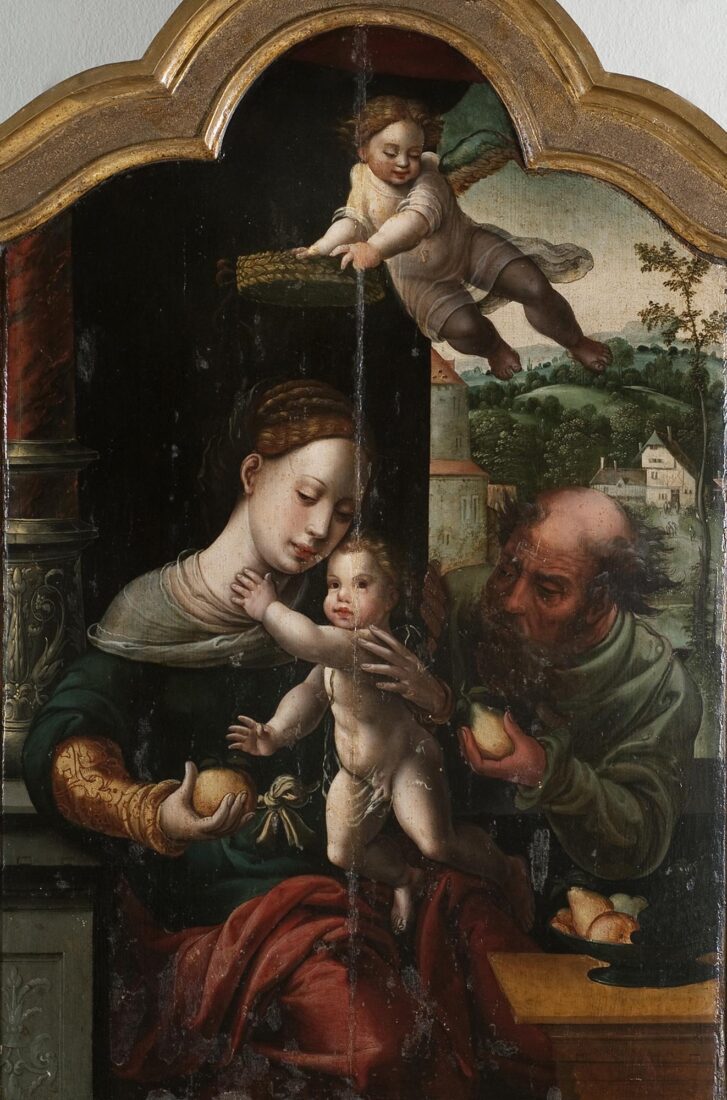We use cookies to make our site work properly, to personalize content and ads, to provide social media features and to analyze our traffic. We also share information about how you use our site with our social media, advertising and analytics partners. Read the Cookies Policy.

Coecke van Aelst Pieter, workshop
The Holy Family, ca. 1525
Oil on panel, 73 x 50 cm
Apostolos Chatziargyris Bequest
This painting is attributed to the school of Bernard van Orley and in particular to the studio of his student and partner Pieter Coecke van Aelst. Coecke had a very active studio in Antwerp with many commissions for paintings and for designing tapestries. The great demand for paintings by the church and the nobility, a result of the Catholic Church Counter-Reformation efforts to prevail against Protestantism, led to an increased production, focusing mainly on the subject matter of the Madonna, the Holy Family and the Adoration of the Magi.
The National Gallery work perhaps follows the original composition of Bernard van Orley, which was reproduced in several versions (at least 11 are mentioned), with differences by Coecke’s studio mainly in the background. The composition is quite compact and comprehensive in its organisation and incorporates in a relatively small area the figures of the Madonna, the Holy Child, Joseph and an angel, who hovers above and crowns the Madonna.
The Virgin Mary, holding an apple, is presented as an alternative Eve, a saviour of the world from the original sin through the baby she holds on her lap, while Joseph offers Jesus a pear, a symbol of the divine incarnation. The composition includes a still life in the bottom-right foreground with apples and pears and their corresponding symbolism, walnuts representing the flesh of Jesus Christ and grapes referring to his Sacrifice.

